On the morning of April 24, 2025, the lecture “Artificial Intelligence and Artistic Creation” was held at Room 201 of Building East 5, Zijingang Campus, the School of International Studies of Zhejiang University. Hosted by the Institute of French Language and Culture of the School of International Studies, the lecture featured Professor Alexandre Gefen, Senior Researcher at the Centre national de la recherche scientifique (CNRS), a top research center in France and a renowned historian of intellectual and literary history, as the keynote speaker. The lecture was then moderated by Dr. SHI Yeting from the Institute of French Language and Culture, with Professor ZHAO Jia, Deputy Dean of the School of International Studies, in attendance.
Dr. SHI Yeting commenced the event by introducing Professor Alexandre Gefen’s academic background and research expertise. As a leading scholar in contemporary literature, art history, and cultural theory, Professor Gefen has recently focused on exploring AI applications and impact in literary and visual arts creation.
Professor Gefen initiated his presentation with an overview of the evolution of cultural history. He emphasized that humanit’s imagination and practice of “automated creation” predates the recent emergence of large language models (LLMs), tracing back to Western cultural traditions that reflect our enduring pursuit of automated creativity. Historical examples included automatic writing devices and mechanical painting apparatuses. Through quantitative analysis of AI-assisted art exhibitions and generative artwork auction statistics, Professor Gefen demonstrated the tangible impacts of AI on contemporary artistic practices.
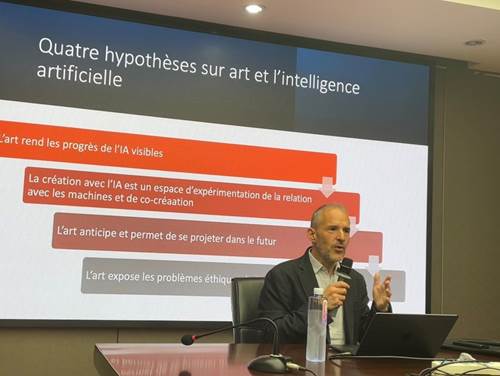
The lecture then focused on the advantages and challenges that generative AI, especially LLMs, brings to literary composition. Professor Gefen deconstructed the statistical text-generation mechanisms underlying LLMs, highlighting how “high-frequency prioritization” leads to stylistic homogeneity. He cited the paradoxical case of growing French novel production accompanied by narrative and emotional homogeneity in recent years. Besides, the researcher also emphasized the “black box” nature of LLM and revealed the gap between algorithmic generativity and human comprehensibility.
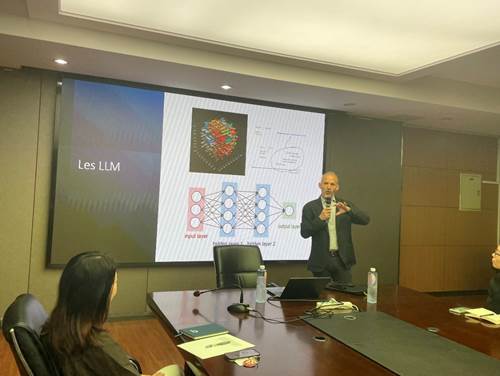
Following this, Professor Gefen expanded his focus to image and video creation. The astonishing speed at which AI painting and video generation technologies are approaching the threshold of realism has prompted debates on art popularization.
In the end, Professor Gefen concluded the contemporary art with four key words: democratization, acceleration, reflexivity, and ethicality. He stressed that in the face of technological waves, artists and scholars are expected to jointly shoulder the responsibility of critique and re-invention. They are not only the witness of such changes but should also actively participate in deep reflections on “what it means to be human” and the relationship between humans and machines.
During the Q&A and discussion session, Professor Gefen engaged in a lively exchange with faculty and students on topics such as the trend of art democratization brought by AI, the relationship between AI-generated works and human creativity, and related linguistic and philosophical issues. Professor Gefen provided in-depth explanations for each question. Therefore, this lecture not only offered new perspectives on the relationship between artificial intelligence and art but also charted new directions for future academic research and creation for the attendees. The event concluded with warm applause.
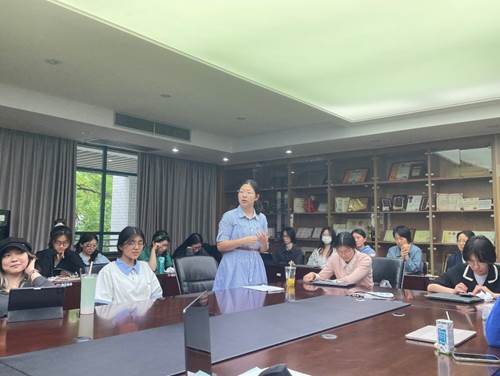
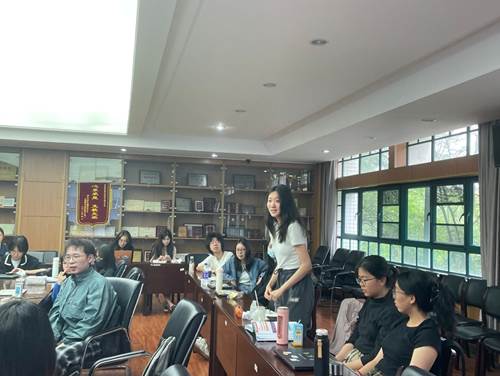
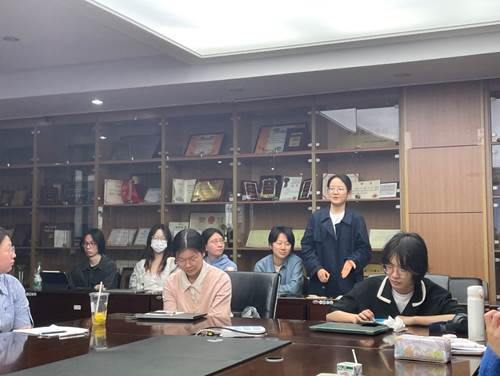
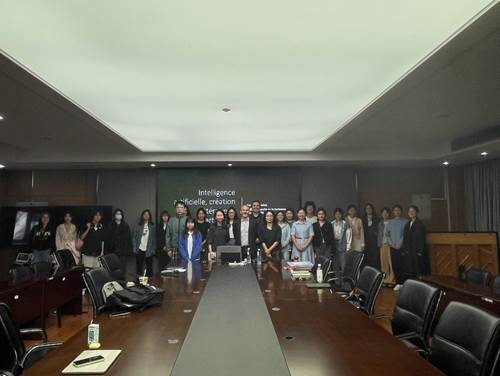
Text/Photos: LIU Yuqi / REN Zhixian
Institute of French Language and culture
Translated by SUN Fangrui, Proofread by XU Xueying



